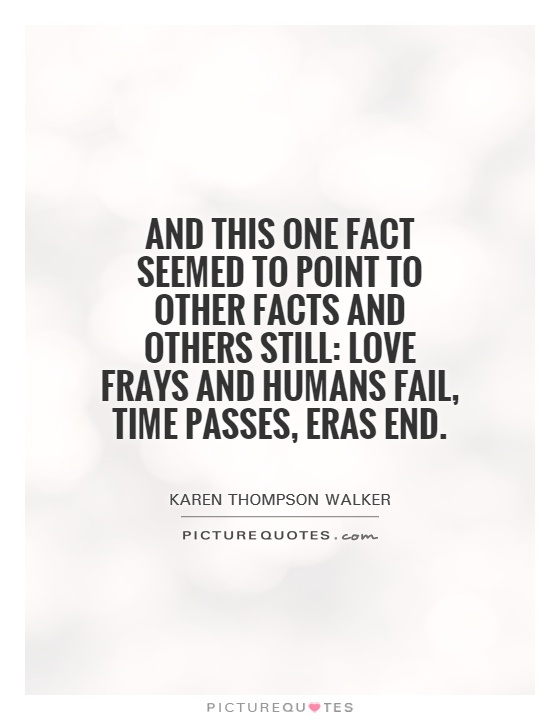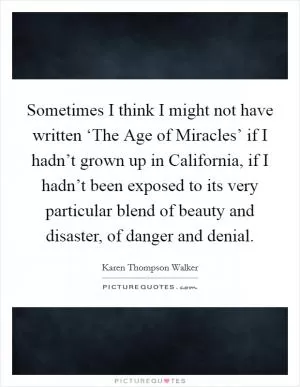And this one fact seemed to point to other facts and others still: Love frays and humans fail, time passes, eras end

And this one fact seemed to point to other facts and others still: Love frays and humans fail, time passes, eras end
Karen Thompson Walker is a talented author known for her ability to weave intricate and thought-provoking narratives that explore the complexities of human emotion and the passage of time. In her work, she often delves into the themes of love, loss, and the inevitable march of time, creating stories that resonate with readers on a deep and emotional level.The quote, “And this one fact seemed to point to other facts and others still: Love frays and humans fail, time passes, eras end,” encapsulates the essence of Walker’s writing. It speaks to the universal truths that underpin her stories, highlighting the fragility of love, the fallibility of humanity, and the inexorable march of time.
Love, a central theme in Walker’s work, is portrayed as a delicate and ephemeral force that can be easily frayed and torn apart. In her novel, "The Age of Miracles," Walker explores the impact of a catastrophic event on a young girl’s life and her relationships with those around her. As the world descends into chaos, the bonds of love and friendship are tested, revealing the vulnerability of human connections in the face of adversity.
Similarly, Walker’s exploration of human failure is a recurring motif in her writing. Her characters grapple with their own shortcomings and mistakes, struggling to navigate the complexities of their emotions and relationships. In "The Dreamers," Walker delves into the consequences of a mysterious sleeping sickness that sweeps through a small town, forcing its inhabitants to confront their deepest fears and desires. Through their failures and shortcomings, Walker’s characters are forced to confront their own mortality and the fleeting nature of human existence.
Time, too, plays a crucial role in Walker’s narratives, serving as a relentless force that shapes the lives of her characters and drives the plot forward. In "The Dreamers," time becomes a fluid and elusive concept, blurring the boundaries between reality and dreams as the characters grapple with the passage of time and the uncertainty of their future.
Ultimately, Walker’s work is a poignant meditation on the transient nature of love, the fallibility of humanity, and the inevitability of time’s passage. Through her evocative prose and compelling storytelling, she invites readers to contemplate the fragility of life and the enduring power of human connection in the face of adversity.












 Friendship Quotes
Friendship Quotes Love Quotes
Love Quotes Life Quotes
Life Quotes Funny Quotes
Funny Quotes Motivational Quotes
Motivational Quotes Inspirational Quotes
Inspirational Quotes